2020 Archives
Two Social Science seniors win Richard Lee Featherstone Endowed Prize
May 5, 2021 - Annie Dubois
Social science seniors Janet Ibarra and Jasmine Jordan, as well as James Madison senior Abii-Tah Chungong Bih, have been named the 2021 recipients of the Richard Lee Featherstone Endowed Prize.
Online Masters in Criminal Justice Program Among Best in the Nation
January 27, 2021 - JJ Thomas
The Online Masters Program in Criminal Justice has been ranked #5 in the Nation by U.S. News and World Report. Thank you to all of our students, faculty, staff, and alumni who have built and represented the School of Criminal Justice and its programs in such a phenomenal light.
College of Social Science Hosting Webinar about Globally-Recognized Enslaved.org Database
January 26, 2021 - Rebecca Jensen, Caroline Brooks, Liz Schondelmayer
On February 25th at 12:00 pm, the College of Social Science is hosting a Zoom webinar for members of the Michigan State University community to learn more about the globally-recognized Enslaved.org: Peoples of the Historic Slave Trade project.
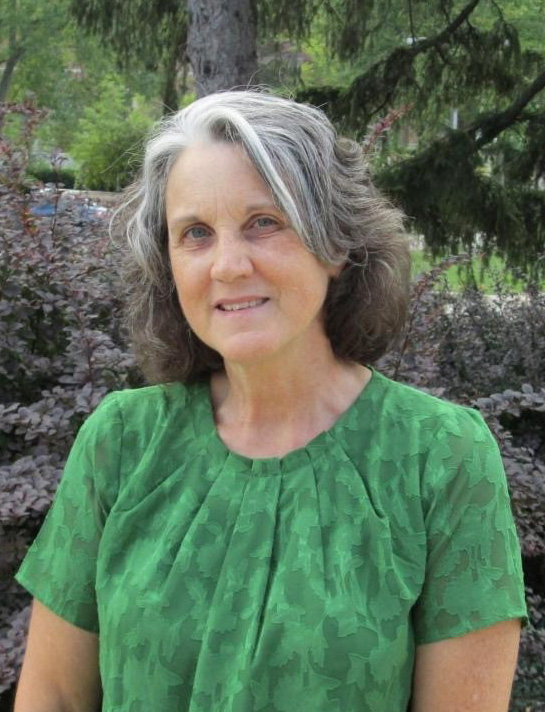
Mary Finn appointed dean of MSU College of Social Science
December 18, 2020 - Becky Jensen
The MSU Board of Trustees has approved the appointment of Mary Finn as dean of the College of Social Science. Finn has been serving as interim dean in the college since March and will continue as dean until June 30, 2023.
Ask the Expert: What’s behind government cyberattacks?
December 16, 2020 - JJ Thomas
The United States recently discovered and announced that it was targeted in an ongoing cyberattack could have originated as far back as March 2020.
MSU students place as finalists in national Federal Reserve competition
December 15, 2020 - Liz Schondelmayer
This fall, a team of undergraduate Spartans received an honorable mention in the Federal Reserve College Fed Challenge. Out of 85 competing university teams, the Spartans placed first in their district and tied for fourth place overall.
MSU Economics team awarded a University-wide Excellence in Diversity Award
December 11, 2020 - Karessa Weir
The MSU American Economic Association Summer Program Team, has been honored with a Michigan State University Excellence in Diversity Award for their work recruiting high achieving female and minority undergraduates for an intensive 12 week education experience.
When social science and art collide: How two MSU history students helped bring the Broad's latest exhibit to life
December 10, 2020 - Liz Schondelmayer
When the social sciences and the arts collide, magic happens. The Eli and Edith Broad Art Museum's most recent exhibit, InterStates of Mind: Rewriting the Map of the United States in the Age of the Automobile, is a perfect example. Combining original art pieces with historical documents, the exhibit explores the cultural significance of cars and travel - all with the help of two history PhD students, Dani Willcutt and Nick Sly.
Why kids hack: Understanding and mitigating risk factors
December 8, 2020 - Liz Schondelmayer
With a computer in almost every household and a cell phone in almost every pocket, it's easier than ever for kids and teenagers to learn how to hack. While some hacking may seem harmless, when this behavior turns criminal, it can have serious economic and social consequences.
Social Science Scholars excel in nationally competitive scholarship contests
December 2, 2020 - Karessa Weir, Liz Schondelmayer
While 2020 has been a collectively challenging year, Michigan State University Social Science Scholars Maysa Sitar and Jasmine Jordan have persevered through the obstacles and rounded out the year as finalists in multiple prestigious, highly-selective national scholarship competitions.
Newest phase of massive slavery database welcomes public contribution
December 1, 2020 - Caroline Brooks, Rebecca Jensen
Michigan State University's searchable database containing millions of records cataloging the lives of enslaved Africans and their descendants — Enslaved.org — is launching a second phase that will accept contributions from the public and from academic researchers.
A-CAPP earns 2020 IPR Partnership Award
December 1, 2020 - Jocelyn Tucker
The National Intellectual Property Rights Coordination Center (IPR Center) announced Thursday the recipients of its 2020 Partnership Awards during the inaugural private sector recognition ceremony at its northern Virginia headquarters.
KnowWhereGraph: Enriching and linking cross-domain knowledge graphs using spatially-explicit AI technologies
November 30, 2020 - Diane Huhn
Matrix: Center for Digital Humanities and Social Sciences in the College of Social Science at Michigan State University is collaborating with a multidisciplinary team of researchers who have received a $5 million grant from the National Science Foundation's Convergence Accelerator program. The team will create an open, cross-domain "knowledge graph" that will connect and link facts and knowledge in new ways that have not been accessible or usable before
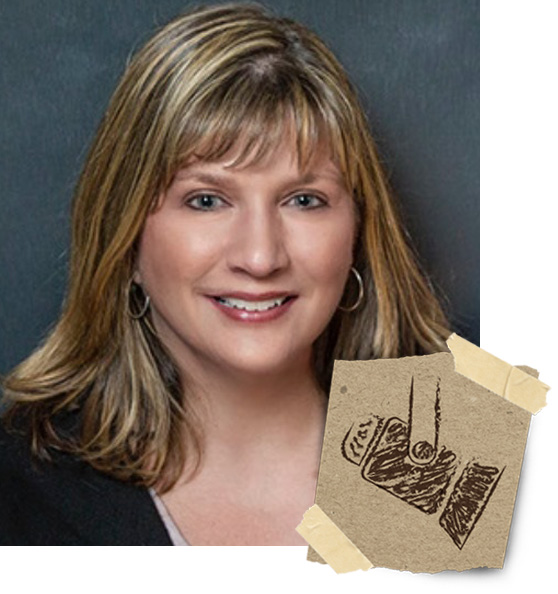
Diversity Spotlight: Ms. Karen Phillippi
November 30, 2020 - Liz Schondelmayer and Brandon Drain
Karen Phillippi, a MSU Anthropology alumna, celebrates a career in immigration law and is now the Director of New American Integration with the Office of Global Michigan.
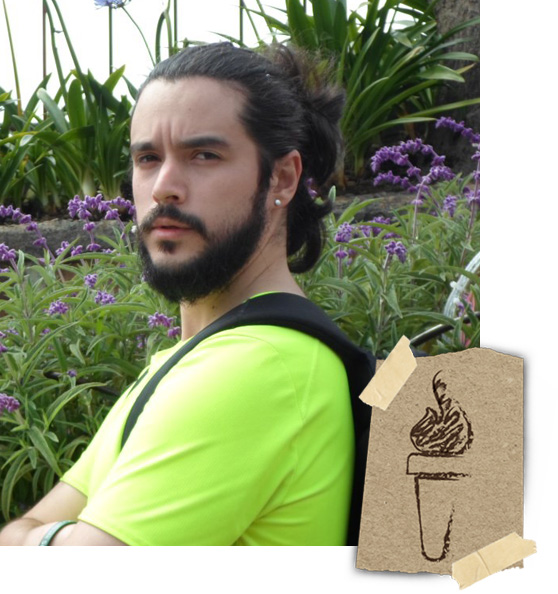
Diversity Torch: Mr. Juan Carlos Rico Noguera
November 30, 2020 - Liz Schondelmayer and Brandon Drain
Juan Rico Noguera is a PhD student within the MSU Department of Anthropology. Born in Colombia, his research focuses on human rights violations committed in the nation's past.
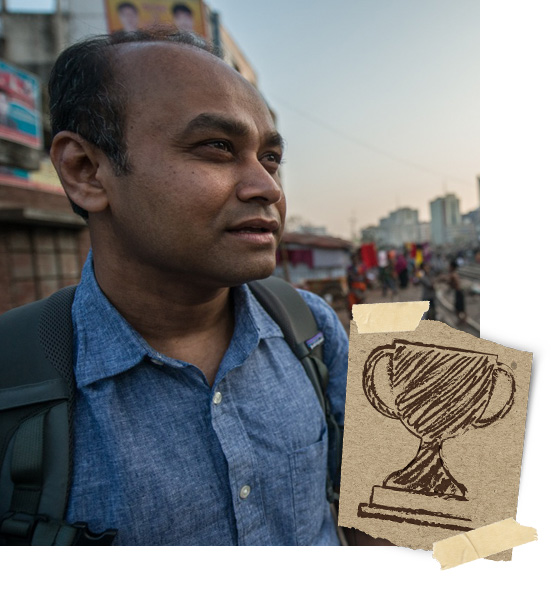
Diversity Champion: Dr. Monir Moniruzzaman
November 30, 2020
Dr. Monir Moniruzzaman is an associate professor in the Department of Anthropology at the Michigan State University College of Social Science. His research examines human organ trafficking within the black market, and how to combat this human rights violation.
Second Frederick S. Addy Distinguished Chair named in the College of Social Science Department of Economics
November 18, 2020 - Karessa Weir
Dr. Antonio F. Galvao has been hired to be the second Addy Chair of Economics thanks to the generous endowment gift by MSU alumnus Frederick S. Addy. Dr. Galvao is currently a professor of economics at the Eller College of Management at the University of Arizona and joins MSU in the fall of 2021. Dr. Galvao previously taught at the University of Iowa and University of Wisconsin-Milwaukee. He earned his PhD in Economics from the University of Illinois in Champaign-Urbana.
How teachers and families can support science learning at home
November 17, 2020 - Liz Schondelmayer
For many children, a love for learning starts before their first day of kindergarten - and an interest in science is no exception. However, for many children, barriers such as language, parental attitudes, and resource availability can curb their curiosity.
MSU economist Dr. Lisa Cook to serve on Biden-Harris transition team
November 11, 2020 - Liz Schondelmayer
Michigan State University economist Dr. Lisa Cook has been selected to serve on President-Elect Joe Biden and Vice President Kamala Harris's transition team.
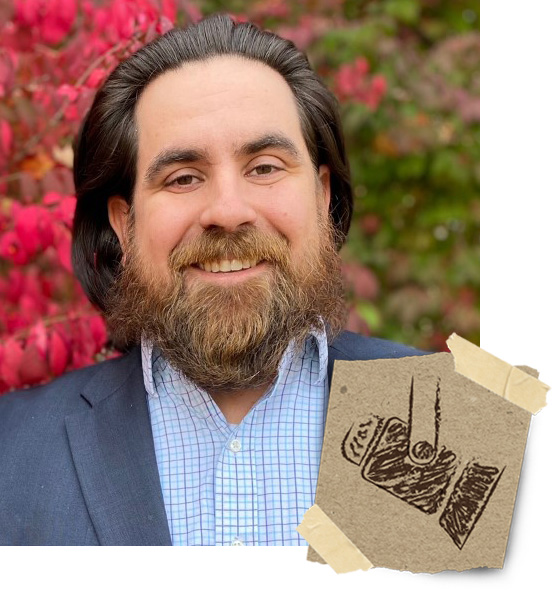
Diversity Spotlight: Dr. Adam Farero
October 29, 2020
Dr. Adam Farero earned his PhD from the Department of Human Development and Family Studies in December 2019. Since then, Adam has accepted a fixed-term faculty position within the department, where he serves as a full-time assistant professor and researcher.

Diversity Torch: Angie Sanchez
October 29, 2020
Angie Sanchez is a PhD student in the Department of Geography, Environment and Spatial Sciences. Her dissertation research focuses on breastfeeding access for women in Indigenous communities throughout Michigan.
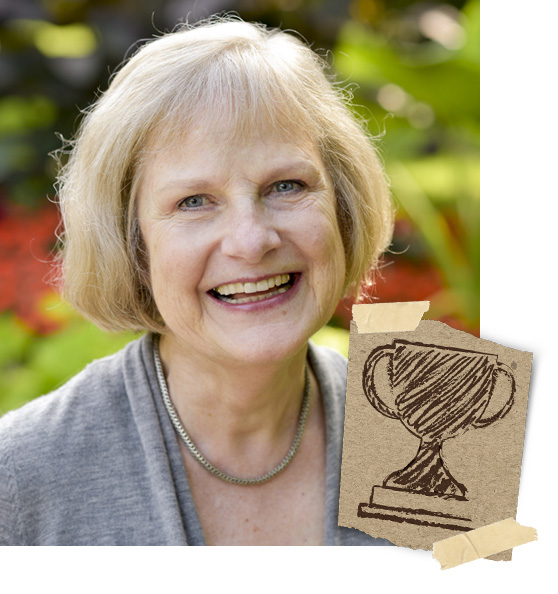
Diversity Champion: Dr. Susan Sleeper-Smith
October 29, 2020
Dr. Susan Sleeper-Smith is a professor in the Department of History, as well as the Department of American Indian and Indigenous Studies in the College of Arts and Letters. A member of MSU's faculty since 1994, Susan's research focuses on Indigenous communities in the late 18th and early 19th centuries.
Ask the Expert: Can we trust election polling?
October 20, 2020 - Liz Schondelmayer
For many voters, these polls can be confusing, and a challenge to interpret and trust. Corwin Smidt, associate professor and chair of the Department of Political Science, explains how poll data is collected, how to interpret it and why polling data shouldn’t dictate public opinion when voters cast their ballots.
Insights from early Covid-19 responses about promoting sustainable action
October 16, 2020 - Karessa Weir
Dr. Tom Dietz, MSU University Distinguished Professor of Sociology, has published an article exploring what we can learn about the public responses to COVID-19 and how those lessons can be applied to global environmental crises.
Chen co-authors book enabling international audience a detailed exploration of China's grassland ecosystems
October 16, 2020 - Diane Huhn
Jiquan Chen of the Center for Global Change and Earth Observations (CGCEO) and the Department of Geography, Environment, and Spatial Sciences at Michigan State University, has joined several scholars in publishing the first in a planned series of volumes enabling the broader international community to explore the ecosystems of China. This first book, Grassland Ecosystems of China: A Synthesis and Resume, is particularly helpful for those interested in studying China's drylands and provides a comprehensive overview of its grassland ecosystems.
MSU researchers develop software tool to assess children’s phonological awareness
October 14, 2020 - Liz Schondelmayer, Caroline Brooks
Understanding sounds in language is a critical building block for child literacy, yet this skill is often overlooked. Researchers from Michigan State University have developed a new software tool to assess children’s phonological awareness — or, how they process the sound structure of words.
Examining race in Jamaica: How racial category and skin color structure social inequality
October 13, 2020 - Karessa Weir
Monique D.A. Kelly, MSU Sociology Dean's Research Associate, has published her research challenging long-held assumptions that marginalize race with regards to social inequality in Jamaica.
Haunted MSU taking place virtually in 2020
October 8, 2020 - Liz Schondelmayer
The highly-anticipated Michigan State University Apparitions and Archaeology tour has returned for the entire month of October, virtually. Ghosthunters, paranormal enthusiasts, and archaeology lovers can access the tour online and learn more about the haunting history of MSU's campus.
Ask the Expert: What is redistricting, and how does it affect political power?
October 7, 2020 - Caroline Brooks
Fair or not, whether Democrats or Republicans hold the majority power in Congress isn’t in the hands of voters. Where certain district lines are drawn within states – which are determined based on changes in population – dictates who holds a seat in the U.S. House of Representatives and in many state senates.
MSU interdisciplinary team secures $3.2M National Science Foundation convergence grant to empower off-grid communities
October 7, 2020 - Diane Huhn
Michigan State University Researcher Emilio Moran will lead a team in the development of a convergent framework offering non-dam hydropower as a sustainable energy solution for off-grid communities while empowering and engaging residents throughout the process.
Dr. Francisco Villarruel: Making sure everyone is accounted for
October 6, 2020 - Liz Schondelmayer
Later this month, social scientist Dr. Francisco Villarruel from the Department of Human Development and Family Studies will be presenting research in a Congressional briefing sponsored by the Hispanic Congressional Caucus.
Remembering Ruth: The long-lasting legacy and immediate controversy of Supreme Court Justice Ruth Bader Ginsburg
September 28, 2020 - Karessa Weir, Liz Schondelmayer
MSU Political Scientists reflect on the life and legacy of the late Supreme Court Justice, Ruth Bader Ginsburg.
MSU social scientists developing innovative, effective research methods for studying experiences of transgender people
September 24, 2020 - Liz Schondelmayer
A team of Michigan State University social scientists and a co-investigator at the University of Oregon recently earned a grant from the National Institute on Minority Health and Health Disparities to develop new ways of measuring minority stress among transgender and gender diverse (TGD) people.
Removing the knees from their necks: mobilizing community practice and social action for racial justice
September 23, 2020 - Liz Schondelmayer, Karessa Weir
While the pandemic is wreaking havoc on American public health, there is another often-overlooked public health crisis that is demanding attention and immediate action: systemic racism, according to social work researchers Drs. Anna Maria Santiago and Jan Ivery. And while many social workers attempt to negate the harmful impacts of these conditions, Santiago and Ivery argue that instead they often perpetuate racism in their work.
The Benefits of Friendship: Teen social networks linked with levels of adult depression
September 22, 2020 - Karessa Weir
Teens who have a larger number of friends may be less likely to suffer from depression later in life, especially women, a new MSU research study has found.
MSU PLS to study how social pressure affects the youth vote amid Covid-19
September 18, 2020 - Karessa Weir
Three MSU Political Science researchers were awarded a Rapid-Response Grant to assess the outcomes of civic training and positive social pressure to vote on young voters during a global pandemic.
Dr. Nazita Lajevardi receives grant to study attitudes toward the release of inmates during Covid-19
September 18, 2020 - Karessa Weir
Jail and prison inmates are disproportionately affected by the pandemic and advocates are calling for the release of non-violent offenders. Whether this will succeed depends on public attitudes toward the incarcerated and health emergencies, according to a new MSU PLS research grant.
The unintended consequence of becoming an empathetic person
September 16, 2020 - Caroline Brooks
When people say that they want to change things about their personalities, they might not know about the inadvertent consequences these changes could bring. In fact, changes in personality may also lead to changes in political ideologies, say researchers from Michigan State University and the University of Granada, who led the study.
conflictNet: Helping researchers map the networks of civil unrest
September 15, 2020 - Karessa Weir
Dr. Shahryar Minhas, Assistant Professor of Political Science, has received a National Science Foundation grant to create a tool by which scholars can study civil conflict through a network perspective.
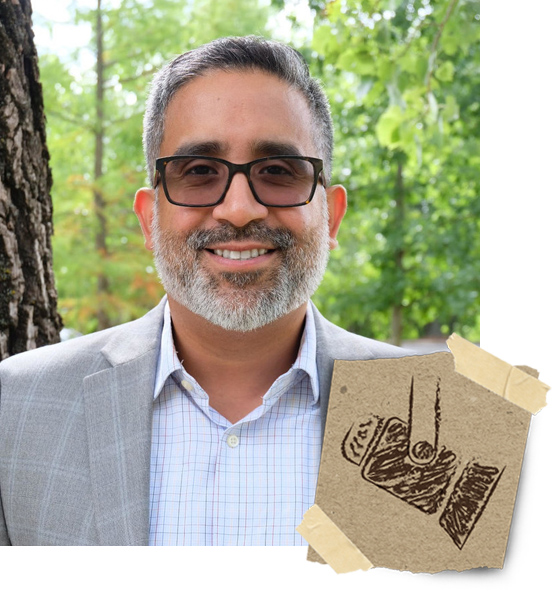
Diversity Spotlight: Dr. Carlos Aleman
September 13, 2020
Dr. Carlos Aleman, Deputy Director of the Hispanic Interest Coalition of Alabama, works in community development and advocacy to champion economic equality, civic engagement, and social justice for Latino families in Alabama.
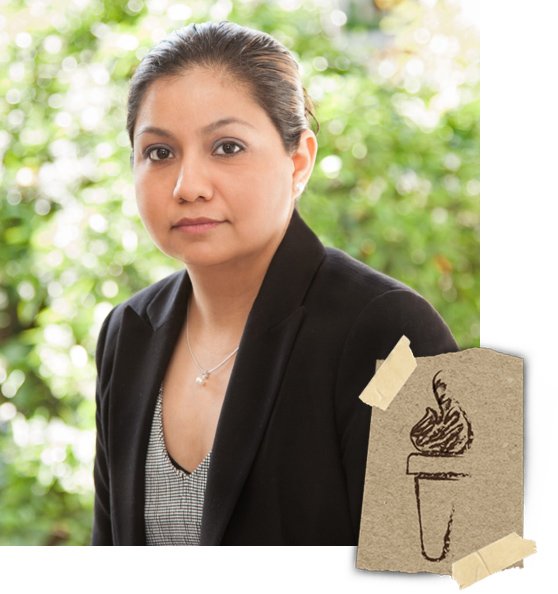
Diversity Torch: Ana Rivera
September 13, 2020
Ana Rivera is a graduate student in Geography, Environment, and Spatial Sciences who is committed to improving urban environments through the use of geo-spatial science.

Diversity Champion: Dr. Ignacio Acevedo-Polakovich
September 13, 2020
Dr. Ignacio Acevedo-Polakovich, associate professor of Psychology at MSU, has demonstrated a commitment to understanding and serving youth in Latina/o communities.
MSU passes torch for hosting the prestigious American Economics Association Summer Program
September 9, 2020 - Liz Schondelmayer
For the past five years, the Michigan State University Department of Economics has hosted the American Economics Association Summer Program. Beginning in 1974, this program prepares and inspires undergraduate students from underrepresented minority communities to pursue higher education and a career within the field of economics.
Studying how COVID-19 has impacted migrants is focus of new MSU Sociology-led research
September 9, 2020 - Karessa Weir
How the ongoing pandemic affects different international communities and, in particular, migrants is the focus of a new MSU lead research study that combines the disciplines of history, economics, geography and sociology.
Social Scientists featured on 2020 Homecoming Court
September 9, 2020 - Liz Schondelmayer, Aimee Klevorn
This year, Homecoming is going to look a little bit different - especially with the cancellation of the 2020 of the Big 10 football season. However, the celebration is still on and will take place virtually, featuring Sparty as the Grand Marshall and the theme of "From East Lansing, with Love."
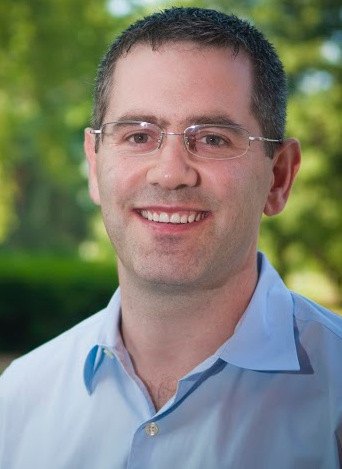
Todd Elder named an MSU Foundation Professor
September 3, 2020 - Becky Jensen
Todd Elder, Professor & Director of Graduate Studies in the Department of Economics, was recently named an MSU Foundation Professor, a designation given to outstanding faculty who demonstrate excellence in research.
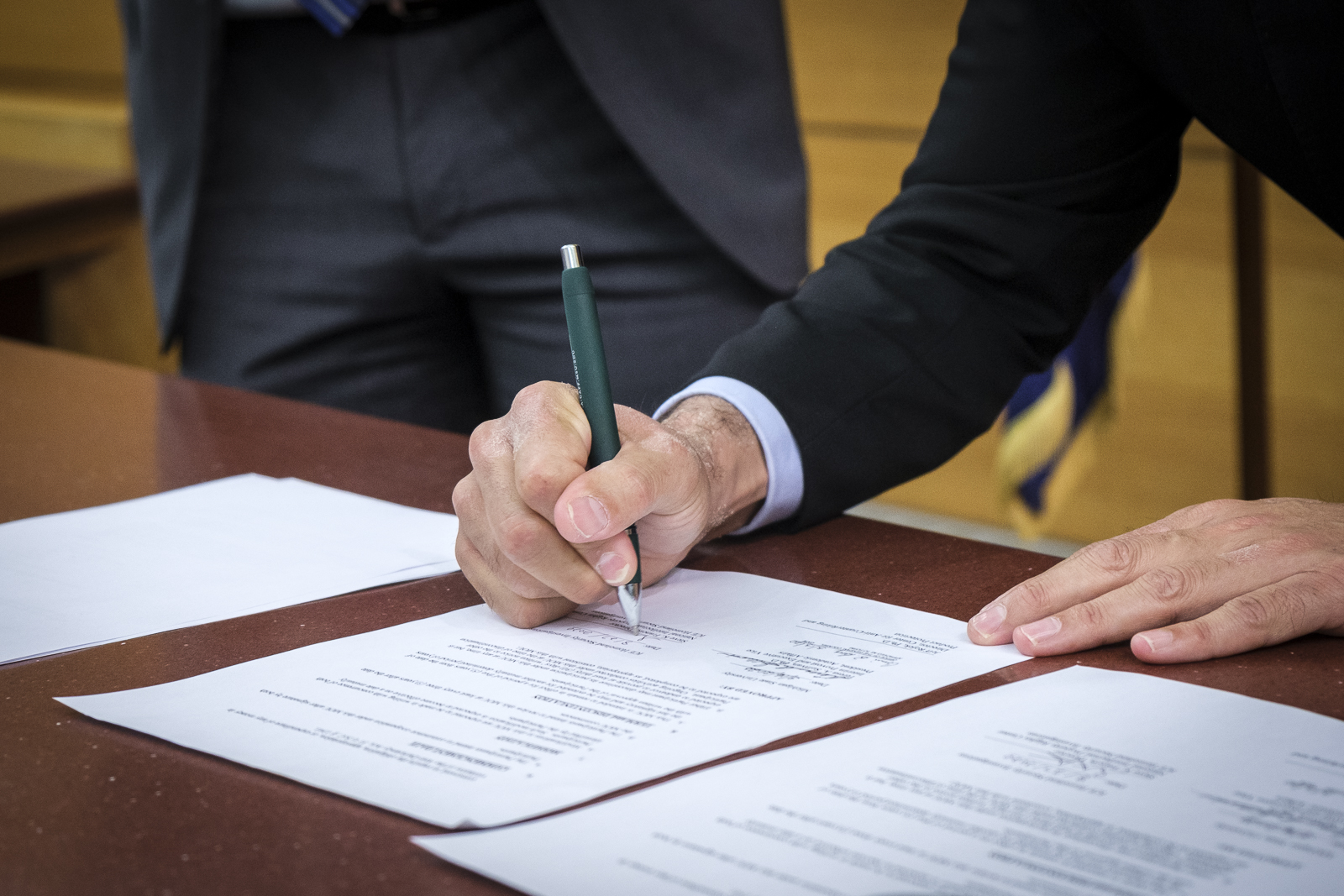
MSU ACAPP Center and IPR Center Enter New Agreement
August 27, 2020 - Jocelyn Tucker
The Center for Anti-Counterfeiting and Product Protection, or A-CAPP Center, at Michigan State University is now officially a new and the first academic partner with the National Intellectual Property Rights Coordination Center, or IPR Center.
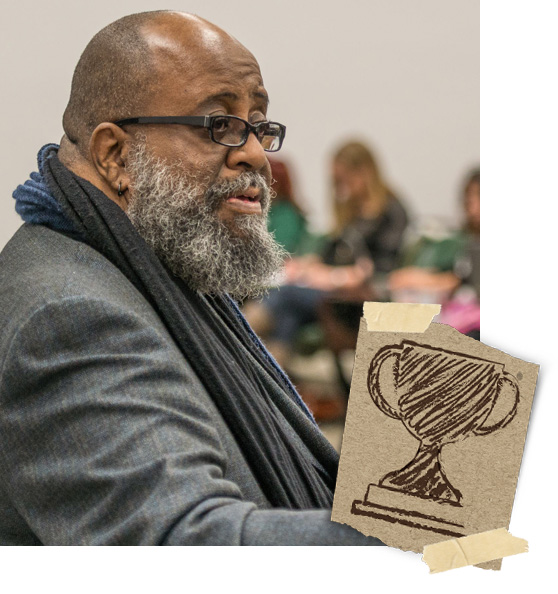
Dr. Carl Taylor – Diversity Champion
August 18, 2020
Sociology Professor Dr. Carl Taylor has extensive experience in field research aimed at the reduction of violence involving American youth. Dr. Taylor has established a national reputation as an ethnographer and takes pride in having worked in some of the most isolated and distressed communities in the nation, giving him a strong understanding of the problems facing many neighborhoods in urban America.
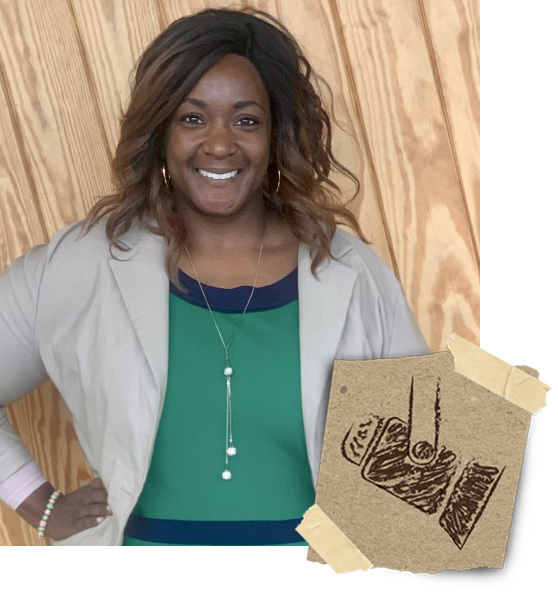
Dee Jordan - Diversity Spotlight
August 18, 2020
Dr. Dee Jordan, the second African American woman to graduate with a PhD from MSU's Department of Geography, Environment, and Spatial Sciences and MSU's Environmental Science and Policy Program.

Allie Klein - Diversity Torch
August 18, 2020
Allie Klein is a fourth-year undergraduate majoring in Political Science, who took a “Slavery and American Popular Culture” class with SSC’s Dean’s Research Associate Program scholar, Nakia Parker, in which she produced a paper on how black women have been imagined in selected works of popular cinema.
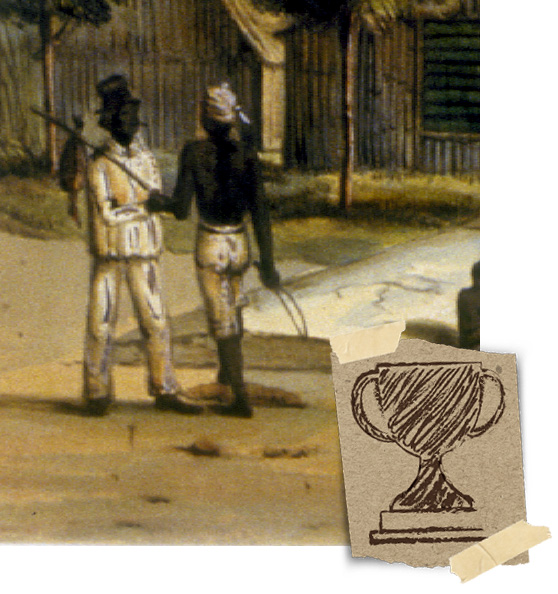
Diversity Digital History Project
August 18, 2020
Enslaved: Peoples of the Historic Slave Trade, curated by Drs. Walter Hawthorne and Dean Rehberger, in which they compile in a single space, archives, databases, and collections that help us understand the experiences of enslaved Africans.
Hiring a hitman on the web: Can contractual violence be added to your online shopping cart?
August 14, 2020 - Liz Schondelmayer
Nowadays, almost anything you want to buy, you can find online. And according to new research from social scientist Dr. Thomas Holt, the current Director of the MSU School of Criminal Justice, hiring a hitman doesn't seem to be an exception.
A-CAPP supports PSA for fraudulent PPE
August 3, 2020 - Jocelyn Tucker
The Center for Anti-Counterfeiting and Product Protection, or the A-CAPP Center, at Michigan State University has partnered with the Department of Homeland Security Investigations (HSI) to inform decision makers and consumers about the flood of fraudulent Personal Protective Equipment (PPE) on the US market.
Read: Dr. Nwando Achebe's best-selling book bridges feminism and African history
August 3, 2020 - Karessa Weir
Social scientist and Michigan State University historian, Dr. Nwando Achebe, also the incoming Associate Dean for Diversity, Equity & Inclusion for the College of Social Science, is the author of one of the bestselling new books in African History, General Gender Studies and Feminist Theory on Amazon.

Michael Hudson - Diversity Champion
July 23, 2020
Michael Hudson has been with MSU since 1992, and is currently the director of the Resource Center for Persons with Disabilities (RCPD).
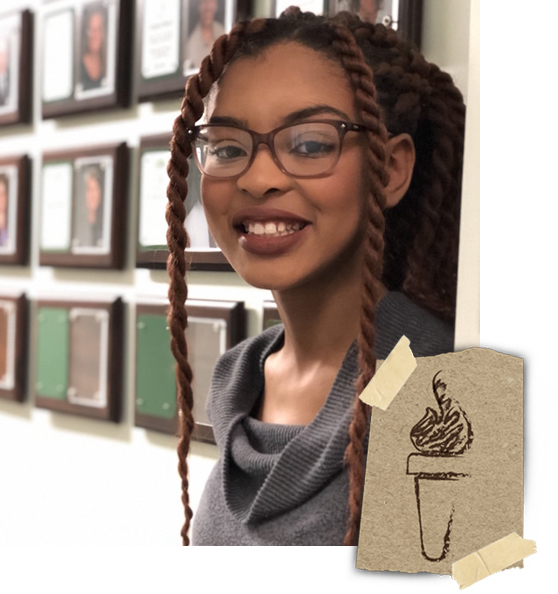
Jasmine Jordan - Diversity Torch
July 23, 2020
Jasmine Jordan is a senior in the College of Social Science majoring in Political Science. She is the co-president of the Council of Students with Disabilities (CSD), as well as a member of the Honors College and Social Science Scholars Program.
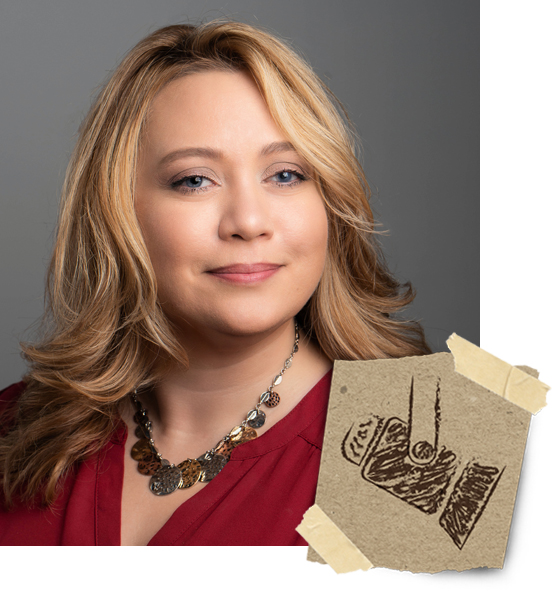
Jenifer Barclay - Diversity Spotlight
July 23, 2020
Jenifer Barclay is an alumna of the Michigan State University College of Social Science. In 2011, she earned her PhD in History, and is now an assistant professor at the University at Buffalo. Her research centers around the African-American history, slavery and disabilities, and the intersectionality of racism and ableism throughout the United States' history.
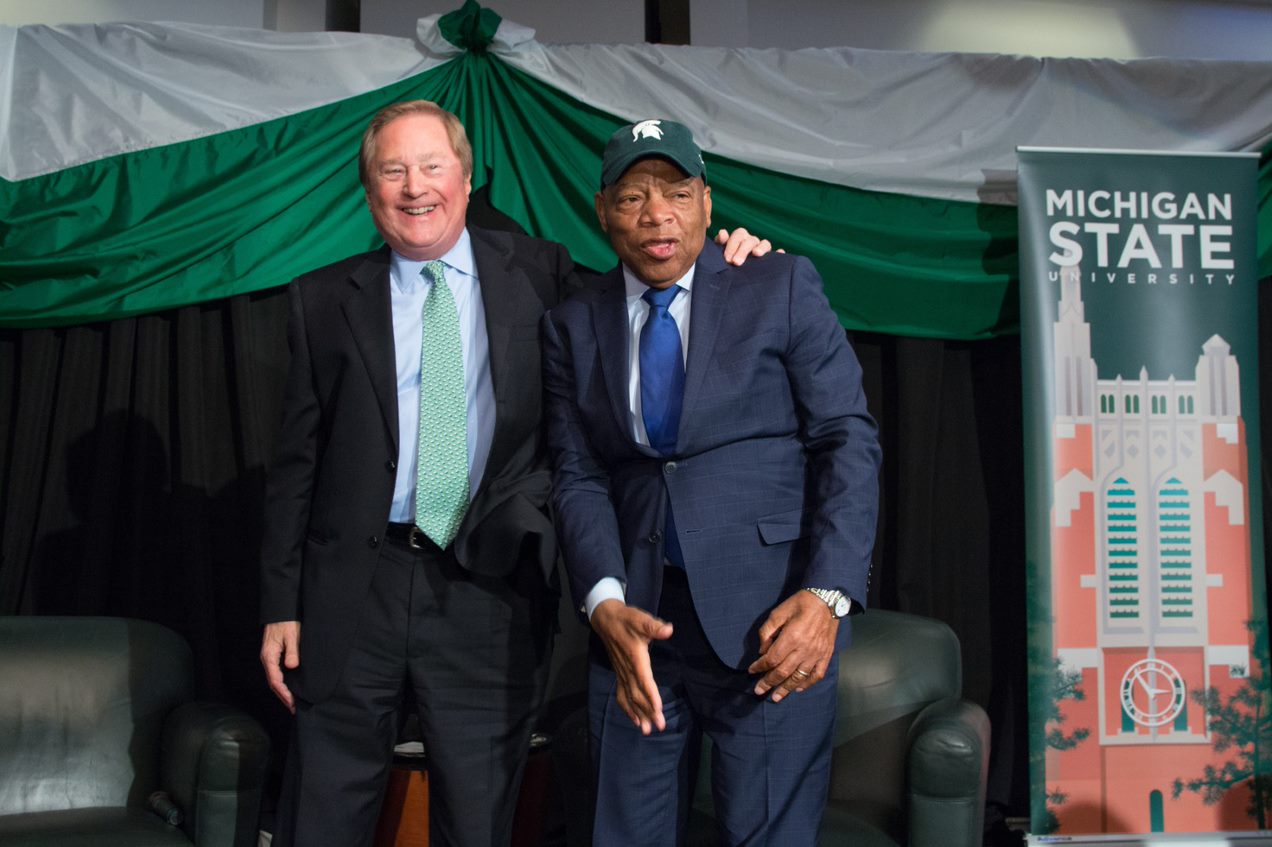
Remembering John Lewis
July 17, 2020 - Becky Jensen
Former Michigan Governor Jim Blanchard Reflects on the Life of Civil Rights Leader and U.S. Representative John Lewis
Ethics of Transregional Research and the Covid-19 Pandemic
July 16, 2020 - Jamie Monson
The spread of the Covid-19 virus—as with any global pandemic—is a transregional phenomenon. Its biological survival depends upon its ability to cross borders. The movement of the virus follows movements of people, thus meaningful Covid-19 research must focus on transregional trajectories of mobility and connection. We are in a time when, more than ever, a robust understanding of the transregional is needed.
Study shows humans are optimists for most of life
July 14, 2020 - Caroline Brooks
Is middle age really the “golden age” when people are the most optimistic in life? Researchers from Michigan State University led the largest study of its kind to determine how optimistic people are in life and when as well as how major life events affect how optimistic they are about the future.
5 ways higher education can be seen as hostile to women of color
July 14, 2020 - Amy Bonomi
Editor’s note: In 2019, Amy Bonomi, a women’s studies scholar, co-edited “Women Leading Change: Breaking the Glass Ceiling, Cliff, and Slipper.” The book examines the perspectives of 23 female leaders on issues of leadership and the challenges of confronting structural racism, bias and discrimination at colleges and universities. Here are five takeaways that Bonomi offers from her book about how higher education can be hostile toward the women of color who serve as college and university leaders.
MSU receives $4M for new doctoral fellowships in education sciences
July 9, 2020 - Karessa Weir
Michigan State University has received $4 million from the U.S. Department of Education to prepare scholars who will help shape decisions affecting students and schools across the nation.
On These Grounds Digital Initiative Receives Mellon Funding
July 5, 2020 - Press Release
On These Grounds digital initiative to describe the history of enslavement at colleges and universities receives funding from the Mellon Foundation
Social Scientists Awarded National Parks Service Grant
July 5, 2020 - MSU Department of Anthropology
Social Scientists Awarded National Parks Service Grant to build a digital archive of WWII Japanese internment and incarceration.
It's a beautiful day in the neighborhood... Or is it?
June 29, 2020 - Caroline Brooks
How do you feel about your neighborhood now that you’ve been confined during a pandemic? A Michigan State University researcher conducted a study to quantify what makes people happy with their neighborhoods and discovered that it has almost nothing to do with the neighborhood itself.
MSU sociologists working to help refugees stay safe from COVID-19
June 26, 2020 - Karessa Weir
In refugee camps and urban settlements throughout the Middle East and North Africa, the threat of COVID-19 is high in the minds of the non-governmental organizations. In some cases, items as simple as soap can be hard to find. In others, the volunteers themselves are scarce as fear of infection spreads.
Social science LEADR lends 3D printer for creation of over 10,000 face shields
June 24, 2020 - Liz Schondelmayer
While many hospitals and community organizations struggle to obtain necessary personal protection equipment, LEADR (the Lab for the Education and Advancement in Digital Research) is putting its resources towards addressing the shortage.
Social science star employee Shannon Davis wins Jack Breslin Distinguished Staff Award
June 17, 2020 - Liz Schondelmayer
The College of Social Science is excited to celebrate Shannon Davis, an administrative associate in the Dean's office who has been awarded the Jack Breslin Distinguished Staff Award.
Dr. stef shuster: Uniting STEM and social science for the LGBTQ+ community
June 16, 2020 - Liz Schondelmayer
Social science research requires innovation and critical thinking. This is why, despite only being at Michigan State University for two years, sociologist Dr. stef shuster has emerged as a campus leader studying the intersection of sexual and gender minority experiences and health.
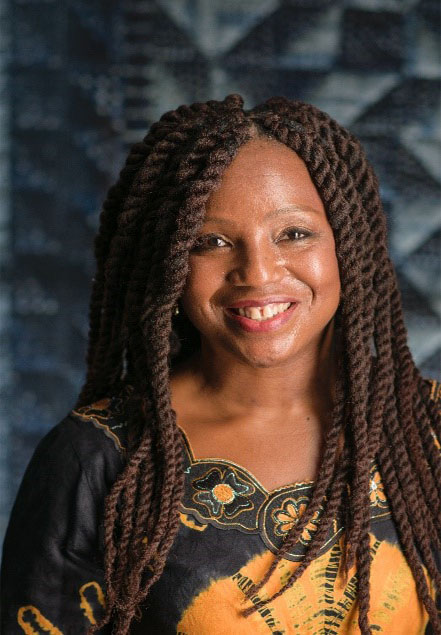
New Associate Dean of Diversity, Equity and Inclusion Announced
June 14, 2020 - Becky Jensen
Nwando Achebe will be the new Associate Dean for Associate Dean of Diversity, Equity, and Inclusion (DEI) for the College of Social Science. Achebe will be leading college activities that will enhance and maintain a diverse, equitable, and inclusive culture. She will begin her new position on August 16.
Academia and mental health: A social scientist’s tips for graduate students
June 5, 2020 - Liz Schondelmayer, Delia Fernandez
Graduate school is academically challenging, and for many students, the rigorous curriculum and high expectations can often lead to mental health struggles. For first-generation students and students of color, these struggles can be even further exacerbated.
The connection between human health & wildlife trade and consumption
June 5, 2020 - Liz Schondelmayer
Since the start of the COVID-19 crisis, speculation about the virus’s origins has led many to question the safety and ethics surrounding worldwide wildlife trade and consumption. For example, the overcrowded and often unhygienic conditions present in wet markets have caused concern among experts for human health repercussions.
How COVID-19 is impacting kids involved in the criminal justice system
June 3, 2020 - Liz Schondelmayer
From school closings to social isolation to prom cancellations, there’s no question that American teenagers are being impacted by the COVID-19 crisis. Adolescents involved with the juvenile justice system are facing even more unique challenges navigating this trying time.
Ning Hsieh: Addressing gaps in LGBTQ+ healthcare
June 3, 2020 - Liz Schondelmayer
Dr. Ning Hsieh, a Michigan State University sociologist, is dedicated to knocking down barriers keeping LGBTQ+ Americans from accessing and receiving quality health care. Through exposing disparities and creating solutions, she plays an instrumental role in creating a better healthcare system for sexual and gender minorities.
A Letter From Interim Dean Mary Finn
May 31, 2020 - Interim Dean Mary Finn
The recent tragic deaths of Black Americans at the hands of law enforcement - George Floyd in Minneapolis, MN and Breonna Taylor in Louisville, KY, as well as the pursuit and shooting of Ahmaud Arbery in Brunswick, GA by two white men--are stark reminders of the racism that exists in our society. We acknowledge that these actions are particularly harmful and devastating to the Black community and simultaneously diminish all of us.
Sense of duty or sense of dread? Understanding how your work environment can change your pandemic attitude
May 31, 2020 - Liz Schondelmayer
The COVID-19 pandemic has caused many Americans and people around the world to feel increased stress, uncertainty and anxiousness - which is affecting how they live and work. To further understand the effects of this pandemic, Michigan State University psychologist Daisy Chang has launched a new study to find out how employer practices can shift essential workers’ attitudes during this crisis.
Dr. Christina DeJong: Making criminal justice work - for everyone
May 28, 2020 - Liz Schondelmayer
Despite many LGBTQ+ pride festivities moving to a virtual platform, one ally in the Michigan State University School of Criminal Justice is making sure that the community remains visible in her field throughout the month of June - and year-round.
Protecting pride pioneers: How social scientist Dr. Anne Hughes is improving conditions for aging LGBTQ+ adults
May 28, 2020 - Liz Schondelmayer
For those of us with aging loved ones, finding the right health care providers and assisted living facilities is extremely important for the welfare of our seniors. However, for many LGBTQ+ seniors, these choices come with unique challenges.
Social scientist Dr. Rebecca Campbell honored with distinguished woman award
May 26, 2020 - Emily Guerrant
The American Council of Education Michigan Woman’s Network has honored Michigan State University Professor of Psychology Dr. Rebecca Campbell with the 2020 Distinguished Woman in Higher Education Leadership Award for her groundbreaking work outside the scope of her formal faculty responsibilities.
MSU sociologists explore the effects of COVID-19 on sexual and gender minorities of color
May 21, 2020 - Karessa Weir
The effects of COVID-19 are hitting sexual and gender minorities of color especially hard, according to a recently funded proposal by two MSU Sociology professors. Drs. Ning Hsieh and stef shuster are investigating how COVID-19 is creating different kinds of risks, health concerns and coping strategies for sexual and gender minorities and comparing those risks for people of color with their white sexual and gender minority counterparts.
Michigan State University researchers release free, online parenting video series as Michigan families stay home
May 18, 2020 - Liz Schondelmayer
Michigan State University researchers Dr. Kendal Holtrop and Amol Pavangadkar teamed up with the Michigan Parent Management Training - Oregon model (PMTO™) program to develop a series of short, research-based parenting videos accessible to parents and caregivers across the state of Michigan.
SPDC degree programs receive STEM designation
May 11, 2020 - Heidi Macwan
Three SPDC degree programs in landscape architecture and urban and regional planning have received STEM designation.
Dr. Angela Hall: How to maintain mental health in the workplace, even in the midst of a pandemic
May 11, 2020 - Liz Schondelmayer
With most of our jobs comes a certain level of stress. Between work that needs to be done and deadlines that need to be met, most of us have felt pressure and strain at some point in our professional lives. Especially given the current COVID-19 crisis, many employees are feeling this stress now.
Understanding mental health in the transgender community, especially in the midst of a pandemic
May 7, 2020 - Liz Schondelmayer
For many transgender people (meaning those whose gender identity differs from that associated with their sex assigned at birth), mental health can be a particular struggle due to an oppressive social climate. Around 50% of transgender people experience elevated symptoms of anxiety and depression, and around 40% of transgender people have attempted suicide in their lifetime.
Meet the 2020 Student Commencement Speaker for the College of Social Science, Sarise Hammad
May 4, 2020 - Liz Schondelmayer
Though the COVID-19 crisis has forced traditional commencement ceremonies to evolve, the College of Social Science would still like to recognize and celebrate our Student Commencement Speaker for the Class of 2020.
College of Social Science Recognizes Outstanding Faculty, Support Staff, And Graduate Students
May 3, 2020 - Diane Huhn
Each year, the College of Social Science at Michigan State University recognizes outstanding faculty, graduate students, and support staff who have made a real difference to students, MSU and the world. Normally these awards are presented during Social Science week, however, due to the COVID-19 pandemic, the college had to postpone the event this year. Here are our winners:
MSU Administration recognizes top Social Science graduates
April 30, 2020 - Liz Schondelmayer
As the College of Social Science’s graduating class of 2020 wraps up their final semester, a select few graduates have been acknowledged by the Michigan State University administration for their commitment to academic excellence.
Meet A-CAPP Center’s 2020 Outstanding Senior, Joey Longo
April 30, 2020 - Jalen Smith, Liz Schondelmayer
As 2020 graduating seniors get ready to transition into the next phases of their academic and professional careers, many are reflecting on their list of accomplishments during their undergraduate careers. And for one particular senior, that list is quite long.
What the COVID-19 crisis means for state and local government finances
April 28, 2020 - Liz Schondelmayer
The COVID-19 crisis has brought about a lot of uncertainty. Economically speaking, many wonder what impact the virus will have on the country and on individual families. A major part of this conversation is how state and local governments will be affected, according to Michigan State University economist Ron Fisher.
Social scientist Dr. John Waller honored with Mentor of the Year 2020 Award
April 23, 2020 - Liz Schondelmayer
Dr. John Waller, professor in the College of Social Science, was honored with the 2020 Undergraduate Research Faculty Mentor of the Year award for Michigan State University.
How COVID-19 is boosting counterfeit markets, and how you can avoid them
April 23, 2020 - Liz Schondelmayer
As social isolation pushes more Americans to shop online, it is increasingly necessary for consumers to make informed decisions about the products they buy - and avoid purchasing counterfeit products.
History in the making: How one MSU professor is documenting the COVID-19 crisis with her students
April 21, 2020 - Liz Schondelmayer
Meet social scientist Dr. Erin Graham, who has built a platform for students in four of her classes to document their first-hand accounts of living through the COVID-19 crisis. These individual student journals, updated weekly throughout the duration of the semester, give students a chance to share their experiences, build a community and create a primary record of life within self-isolation.
Alum Paul Pradel: Navigating the financial side of a pandemic
April 21, 2020 - Liz Schondelmayer
On April 16, the Department of Human Development and Family Studies, together with MSU Extension, the Gast Business Library and MSU Federal Credit Union, hosted “Go for the Green,” a webinar for students about how to stay financially afloat during the COVID-19 crisis. Speaking at the event was financial planner and MSU alumni Paul Pradel, who has shared some advice for students as they navigate this pandemic.
Protecting yourself from the latest intimate internet crime
April 21, 2020 - JJ Thomas
“Sextortion is the use of intimate images or videos that have been captured to then extort compliance from a victim,” said Roberta Liggett O’Malley, MSU criminal justice doctoral student and co-author of the study. “What makes it different from any other crime is the threat to release. A perpetrator could say, ‘I have these images of you and will publish them unless you…’ to get more images or even in exchange for money.”
MSU sociologists discover “loneliness gap” for older LGB Americans in midst of COVID-19 isolation
April 10, 2020 - Liz Schondelmayer
In the midst of the international trend towards social isolation in response to the COVID-19 pandemic, many people are finding themselves feeling lonely. For those already struggling with loneliness, this can be an especially trying time.
Social scientist helping parents with autistic children through the COVID-19 crisis
April 6, 2020 - Liz Schondelmayer
For many families of children with autism, dealing with the COVID-19 pandemic can be an especially challenging time. On top of the many changes brought on by this public health crisis, parents or caregivers may struggle to find available supportive services for their children.
What does isolation mean in the age of the internet?
March 26, 2020 - Liz Schondelmayer
As public health officials are encouraging social distancing to combat the spread of the novel coronavirus strain, COVID-19, many Americans are practicing social isolation. But what does this look like in the age of the internet?
COVID-19 health crisis impacts students who call MSU home
March 26, 2020 - Liz Schondelmayer, Rebecca Jensen
The national coronavirus crisis is greatly impacting MSU students. As the University has moved all classes online, some students have gone home to continue remote learning, or to practice social distancing. However, for some, MSU’s campus is their only home. This public health crisis has eliminated jobs these students depend on to meet their basic needs.
What it’s like to be incarcerated in the midst of a public health crisis
March 25, 2020 - Liz Schondelmayer
Americans everywhere are feeling the effects of the COVID-19 pandemic. But while many are staying home to self-quarantine, for the 2.3 million Americans currently incarcerated, that isn’t an option.

Dr. Mary Finn Recommended to be College of Social Science Interim Dean
March 24, 2020
MSU Interim Provost Terry Sullivan has recommended to the Board of Trustees that Dr. Mary Finn be named as the Interim Dean for the College of Social Science.
How the COVID-19 crisis is impacting crime, police and first responders
March 24, 2020 - Liz Schondelmayer
The COVID-19 crisis has many Americans working from their homes. But for first-responders, such as EMTs, firefighters and police officers, working from home is simply not an option and tragically, some have already fallen victim to the virus.
5 tips for parents getting their kids through the COVID-19 crisis
March 19, 2020 - Liz Schondelmayer
In the wake of vast social distancing due to the COVID-19 virus, many parents and caregivers are facing a unique challenge: helping their children cope with the realities of the novel coronavirus strain.
How to maintain healthy relationships during the COVID-19 crisis - while maintaining proper social distance, of course
March 19, 2020 - Liz Schondelmayer
Social isolation is key to slowing the spreading of the novel coronavirus strain, COVID-19. For many people, however, the newfound social distance can bring on intense loneliness and strains on relationships.
Tips for working successfully in a time of social distancing
March 18, 2020 - Caroline Brooks
For many Americans, the COVID-19 outbreak has created a major shift in workplace dynamics as employees have been asked to work from home. For those who have telecommuted in the past, this may not be a big adjustment; for others, this is a whole new era of setting up quiet spaces, avoiding constant snacking and even keeping kids and pets busy.
How your boss’s personality affects your work team’s performance
March 12, 2020 - Liz Schondelmayer
When it comes to fostering a healthy, productive work environment, how much does leadership actually play a role? According to new research from social scientists Jason Huang and Chenwei Liao of the Michigan State University School of Human Resources and Labor Relations, your boss’s personality has a significant impact on your work team’s commitment and quality of work.
Toxic masculinity is unsafe... for men.
March 11, 2020 - Caroline Brooks
The belief that “real men” must be strong, tough and independent may be a detriment to their social needs later in life. A study co-authored by a Michigan State University sociologist found that men who endorse hegemonic ideals of masculinity — or “toxic masculinity” — can become socially isolated as they age, impacting their health, well-being and overall happiness.
LGBT health improves with community
March 11, 2020 - Caroline Brooks
Individuals in the LGBT community face stressors that have dire consequences on their health. Researchers from Michigan State University are the first to pinpoint social factors that can reduce these stressors and improve health for LGBT people.
Social scientists honored throughout MSU community
February 28, 2020 - Liz Schondelmayer
February was a notable month for the College of Social Science, as many of the college’s faculty and students received prestigious awards and acknowledgements.
Dr. Andrea Louie wins prestigious NEH fellowship
February 28, 2020 - Elena Watson
Dr. Andrea Louie (pictures left), professor of Anthropology and founding director of the Asian Pacific American Studies Program at MSU, has been awarded a competitive 2020 National Endowment for the Humanities Fellowship.
5 things to know about the presidential primary election
February 28, 2020 - Karessa Weir
Super Tuesday is quickly approaching and the predictions are ramping up as to who will win the 2020 Democratic primary election. Matt Grossmann – associate professor of political science and director of Michigan State University’s Institute for Public Policy and Social Research – wants you to slow down, take a step back and learn a few important points about presidential primaries before you get overwhelmed by the rapid news cycle.
How sleep helps teens deal with social stress
February 28, 2020 - Caroline Brooks
A new Michigan State University study found that a good night’s sleep does adolescents good – beyond helping them stay awake in class. Adequate sleep can help teens navigate challenging social situations.
Pero Dagbovie: History, for the Future
February 27, 2020 - Liz Schondelmayer
Pero Dagbovie is a University Distinguished Professor History, a member of the College of Social Science’s Dean’s Advisory Board for Diversity and Inclusion, and mentor for the College of Social Science Dean’s Research Associate Program as well as an associate dean of the Graduate School at Michigan State University. An expert on African American history, Dr. Dagbovie has written seven books and is the editor of The Journal of African American History, the oldest and leading journal in the field of black history.
Social scientist Kelly Klump clears up misconceptions about eating disorders
February 27, 2020 - Caroline Brooks, Caroline Kraft
At least 30 million people of all ages and genders suffer from eating disorders in the United States. In fact, eating disorders have the highest mortality rate of any mental illness. Feb. 24 through March 1 marks National Eating Disorder Awareness Week 2020 – a time to raise awareness for the extensive and complex issue plaguing so many Americans.
Dean’s Research Associate Program welcomes new cohort
February 25, 2020 - Liz Schondelmayer
This year, the College of Social Science is welcoming four talented scholars to the Dean’s Research Associate Program. The 2020-2021 cohort includes researchers Ashlee Barnes, Lekie Dwaynen, Rebecca Karem and Meghan Wilson.
How right-wing extremists are using the internet to ignite intolerance
February 25, 2020 - Liz Schondelmayer
Hatred. Violence. Fear. The internet. What do all of these things have in common? According to research by social scientist Dr. Ryan Scrivens, a professor in the Michigan State University School of Criminal Justice, they are all tools that far-right extremist groups use to recruit and radicalize their members.
Carl Taylor: Innovating, for Life
February 19, 2020 - Liz Schondelmayer
Sociologist Dr. Carl Taylor has served as a professor with the Michigan State University College of Social Science for over 15 years, and is a three-time winner of the Outstanding Undergraduate Teaching Award in Sociology.
3 things students should know about reaching out for help
February 19, 2020 - Liz Schondelmayer
Even though we’ve all had to ask for help at some point, it’s never exactly an easy thing to do. Especially for students, it can be intimidating to approach faculty or reach out for resources when grades start to slip.
Madeleine Albright coming to Wharton Center
February 19, 2020 - Madeleine Albright coming to Wharton Center
The Governor Jim Blanchard Public Service Forum presents an evening with Madeleine Albright, former U.S. Secretary of State & U.S. Ambassador to the United Nations on February 19 at the Wharton Center in East Lansing at 7:30 p.m.
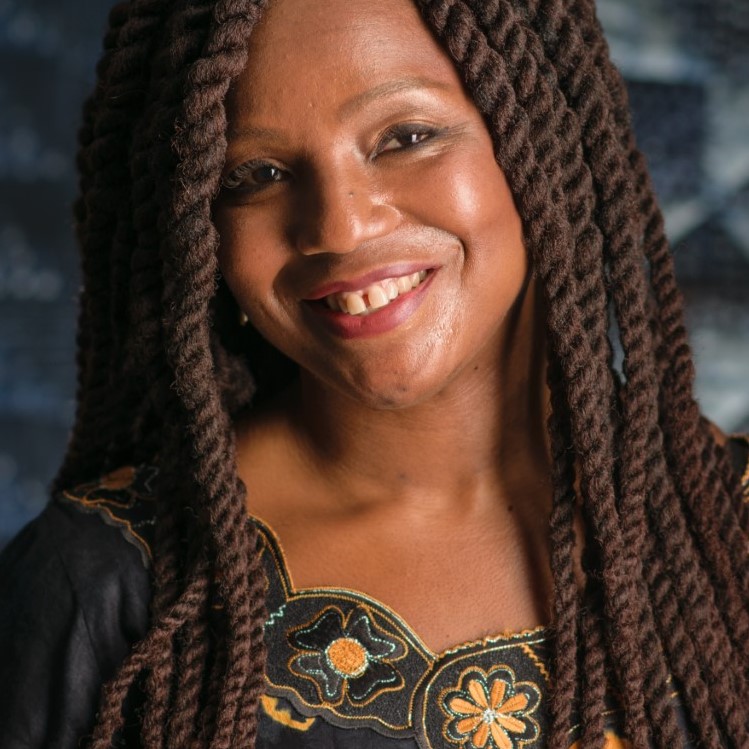
Nwando Achebe: Teaching, for Good
February 17, 2020 - Liz Schondelmayer
Dr. Nwando Achebe is an award-winning oral historian and a fierce advocate for positive change. An author of six books, she is an expert on women, gender and sexuality in the context of African history. But above all, Dr. Achebe is an award winning teacher and passionate professor, going above and beyond expectations and responsibilities to teach her students about a topic near and dear to her heart: Africa, as she knows and loves it.
Why GM workers went (and stayed) on strike
February 13, 2020 - Liz Schondelmayer, Melanie Zaremba
Last year’s United Auto Workers strike against General Motors was a significant demonstration of the solidarity among the workers and their union. New survey data from the front line of the Lansing demonstrations, collected by social scientists Dr. Maite Tapia and Dr. Christian Ibsen from the Michigan State University Department of Human Resources and Labor Relations, shows that striking employees felt a strong sense of unity and purpose while fighting for better conditions.
Polarization helps Congress pass bills
January 30, 2020 - Caroline Brooks
While political polarization in the United States is the worst it has been in years, new research from Michigan State University and the Max Planck Institute for Demographic Research suggests that having a partisan – and sometimes divisive – Congress might be more productive than if bipartisan groups were the norm.
Keeping guns away from potential mass shooters
January 24, 2020 - Caroline Brooks
The United States currently averages 20 mass shootings per year. Researchers from Michigan State University measured the extent to which mass shootings are committed by domestic violence perpetrators, suggesting how firearm restrictions may prevent these tragedies.
MSU social scientist helping to connect young people living with HIV to care
January 17, 2020 - Liz Schondelmayer
According to the Centers for Disease Control and Prevention, only around one-half of HIV-positive individuals aged 12-24 actually know their status. Of those who do, almost 40% are not able to receive care within the first month of receiving their diagnosis. However, thanks to Michigan State University psychology professor Dr. Robin Lin Miller and an interdisciplinary team of experts, that is going to change.
Dr. Barbara Schneider's latest book shows engaged learning works
January 15, 2020 - Karessa Weir
Students in the U.S. and Finland participating in a new project-based learning model are not only learning more, but becoming more engaged in class, research from Michigan State University shows.
Criminal Justice programs ranked among nation's Top Ten by U.S. News and World Report
January 14, 2020 - JJ Thomas, Liz Schondelmayer
The School of Criminal Justice at Michigan State University has ranked in the Top 10 when it comes to Best Online Criminal Justice Programs, according to U.S. News and World Report. The program has held its #10 slot for four years in a row. In addition to this ranking, the School of Criminal Justice is also ranked in U.S. News and World Report’s Top 10 Best Criminology Schools – making Michigan State University the only School in the Big 10 to be feature on both of these lists.
Crowd-sourcing social science: How an MSU professor is engaging the public in one-of-a-kind Supreme Court research
January 10, 2020 - Liz Schondelmayer
Crowdsourcing is a controversial yet innovative product of the internet age, allowing for individuals and organizations to harness the collective power of the world wide web for fundraising and brainstorming. But can crowdsourcing also be used for academic research?
MSU Social science senior included in VIP Media Group’s “Top Ten Female Leaders to Pay Attention to in 2020” list
January 7, 2020 - Liz Schondelmayer
Social scientist Jessica Halmaghi is a senior at Michigan State University studying Human Development and Family Studies, the CEO and founder of the nonprofit Smile 4 Kids, and - as of January 2020 - one of VIP Media Group’s Top Ten Female Leaders to Pay Attention to in 2020.

